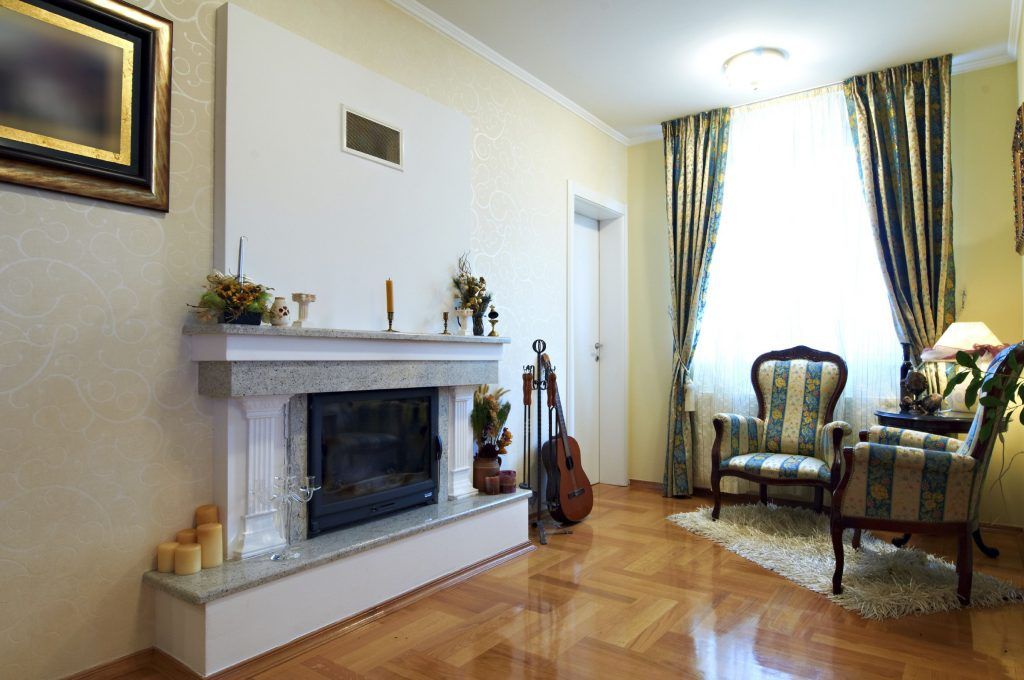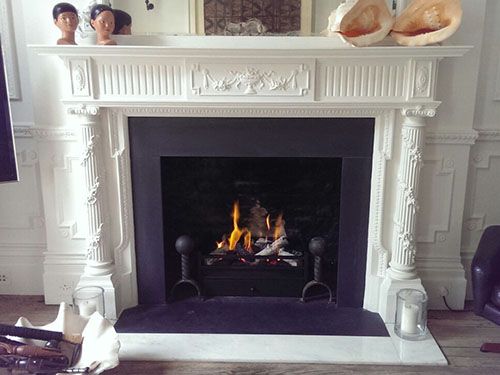A great number of people enjoy watching flames dancing in a fireplace, as they find it relaxing and soothing. However, they might find it challenging to choose the type of fire they want in their home, as there are many options to choose from. Should they go with a wood fire? Or a bio ethanol one? What are the main bioethanol fire advantages and disadvantages, and likewise for wood fires?
In order to answer this question, it’s important to look at the features of these types of fire. This way, a better decision can be made, one that helps you select the fireplace that will best suit your home!
Wood Fires
Wood-burning stoves are often the first choice for many customers, especially because they’re the most familiar to us. They add a fantastic centrepiece to any living room and provide a great degree of warmth. Also, there’s no other sound like the one of wood crackling on a cold winter night.
However, a downside to wood burning stoves is that they can lose warmth through the chimney, so they’re not 100% efficient. In addition, wood can be expensive, depending on where you source it.
Despite these disadvantages, wood fires provide a renewable source of energy and produce a low amount of odour – in fact, many people enjoy the smell of a wood-burning stove, as it offers a sense of familiarity and cosiness.
These types of fires are ideal for people who love a traditional source of warmth for their home, as well as a cosy ambience they can enjoy when it’s cold and dark outside.
Bio Ethanol Fires Advantages & Disadvantages
The first major advantage over wood fires is that bio ethanol is more eco-friendly and efficient. 100% of the heat generated through bio ethanol fireplaces is kept in the room, since no chimney is required.
Bio-ethanol is a fuel composed of biological products, such as the sugar and starch of plant by-products. They give off clean emissions and are also renewable, making them a fantastic choice for environmentally-conscious people who love the modern aesthetic of these fires in their home.
Bio ethanol fires have their disadvantages too, however. The fuel is highly flammable and needs to be stored in a location that is inaccessible to children.
Still, these types of fire don’t produce soot, smoke or ash, and don’t require vents or flues. They also require little to no installation and can be moved to different places in the house, according to your preference.
Both wood and bio ethanol fires present advantages and disadvantages so, in the end, it comes down to your personal preference. Do you prefer the comfortable warmth and smell of a traditional wood-burning stove? Or do you enjoy the contemporary appeal of bio ethanol fireplaces?
No matter what you decide, Real Flame provides both solutions and work together with you to help you make the right choice for your home. Don’t hesitate to contact us today on +44(0)20 7731 5025 and talk to a member of our team if you wish to learn more about our fire solutions.
Get in Touch with Real Flame for more Advice and Information
















